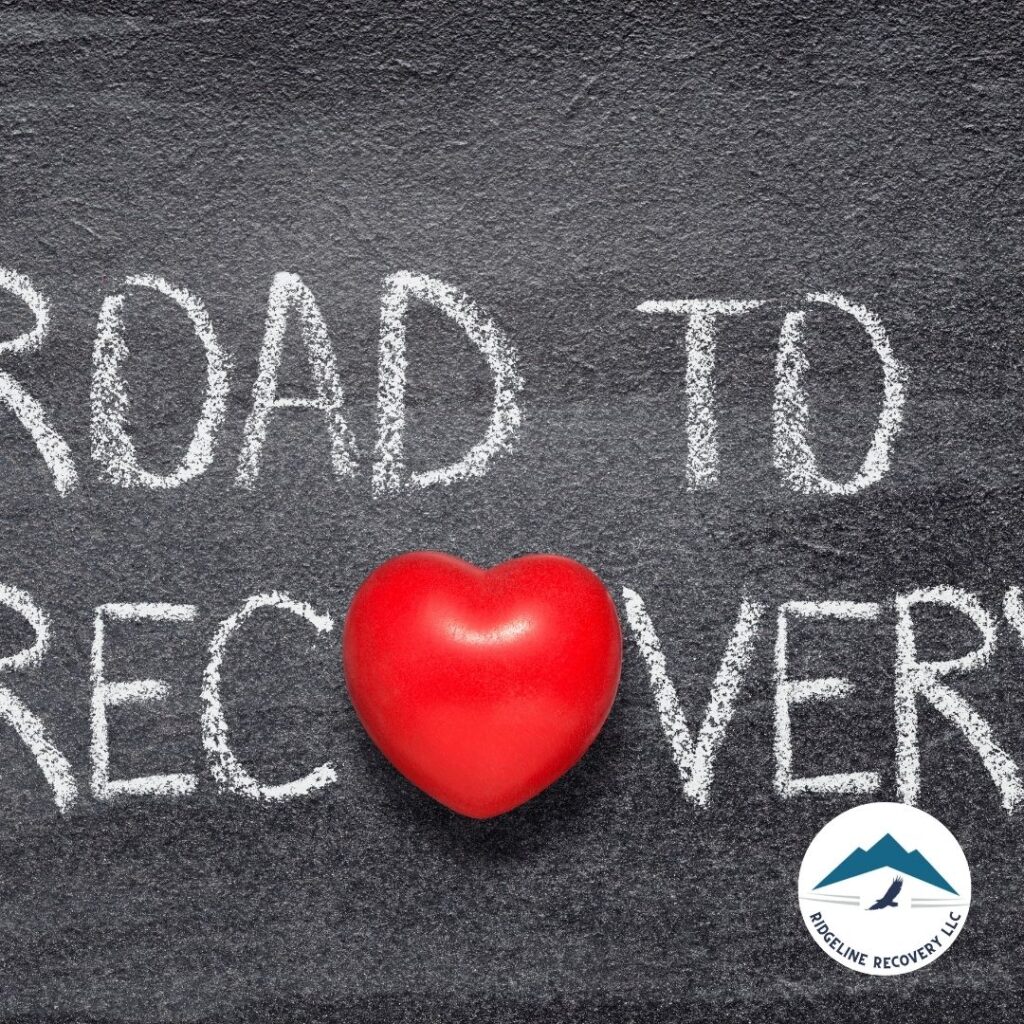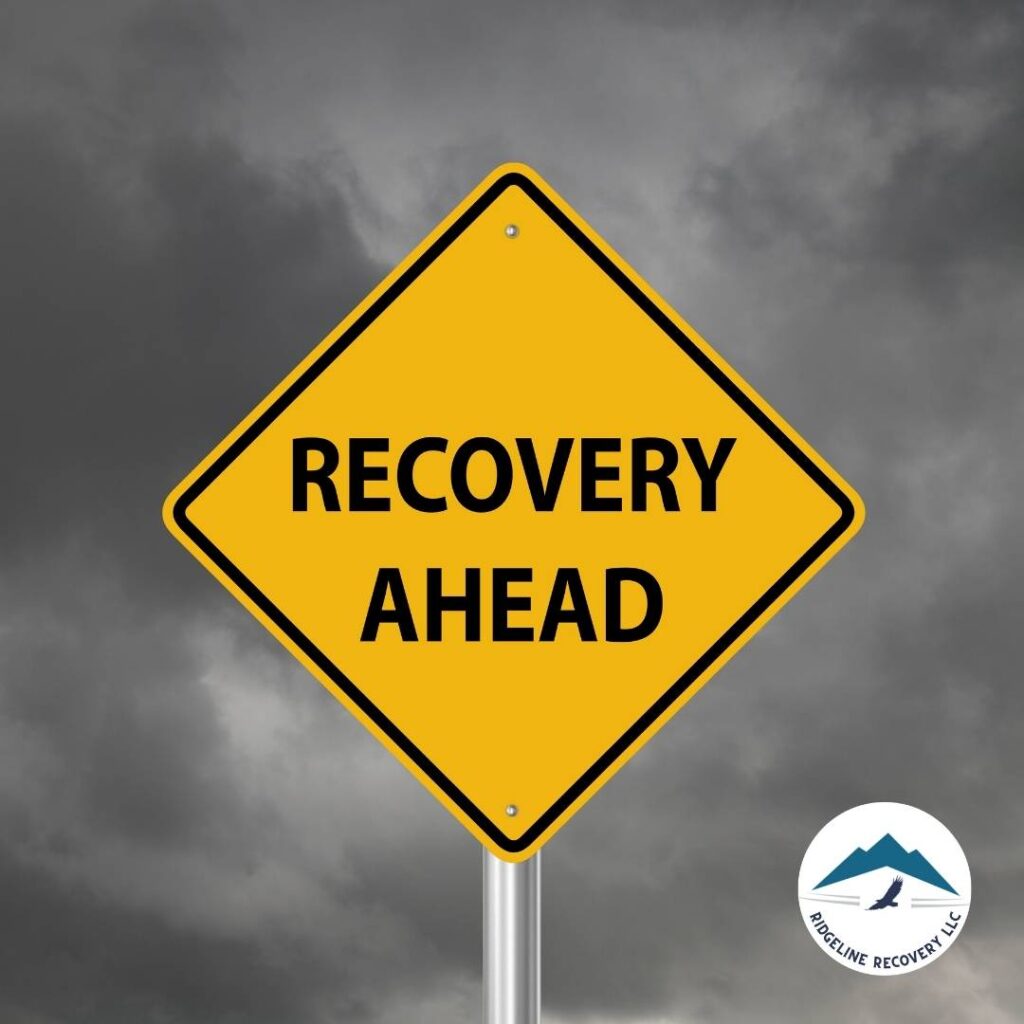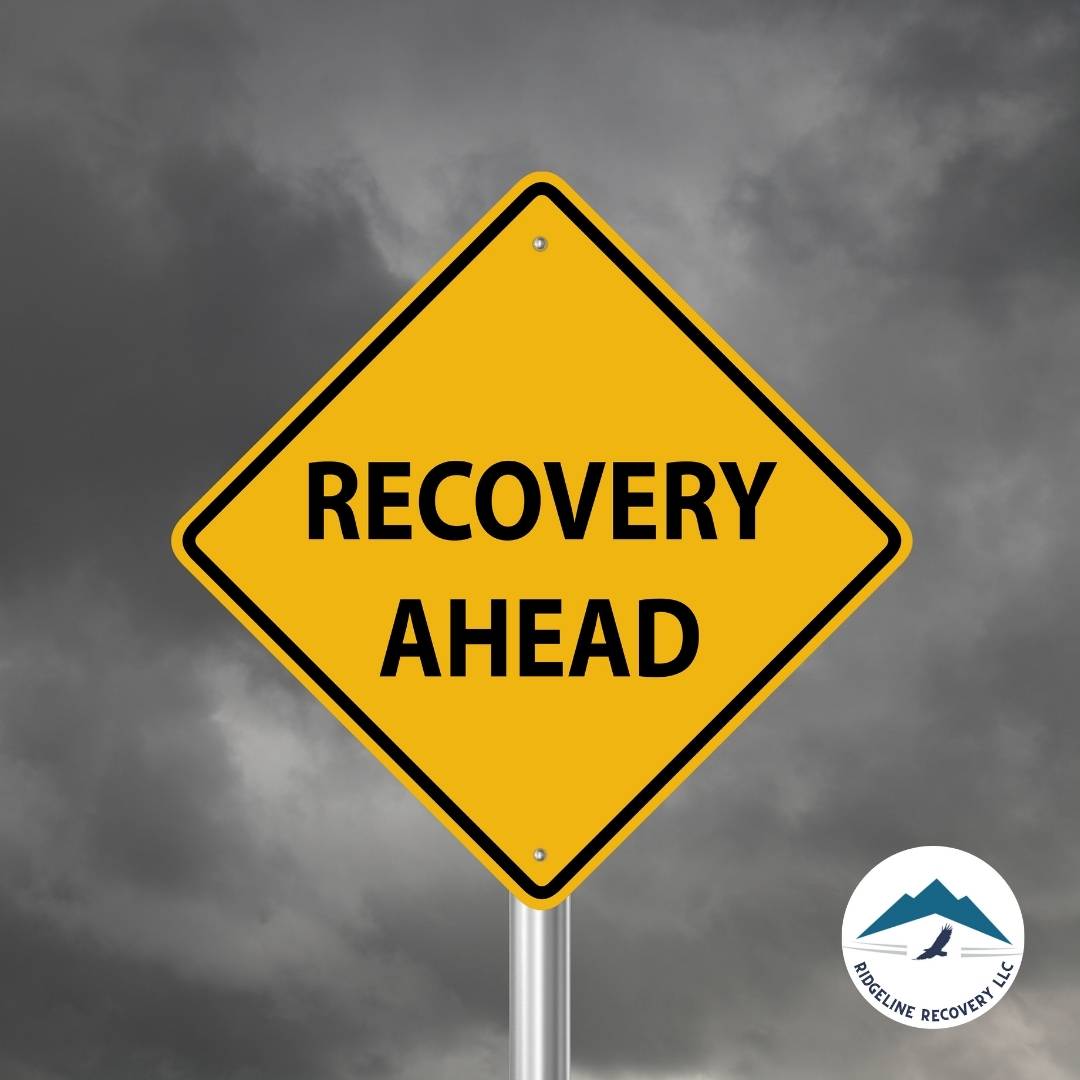You’re tired of wondering, “Is this finally the last time I’ll have to go through this?”
Maybe you’ve tried quitting a few times already.
And maybe you feel like you’ve hit a wall.
Let’s face it. Getting and staying clean isn’t just about getting rid of the substances. It’s a lot more than that.
It’s about building a foundation that’ll hold up when life throws every curveball your way.
At Addiction Treatment Columbus, we know that therapy is a game-changer for long-term sobriety.
It’s about learning to manage stress, face triggers, and build a life you don’t want to escape from.
Let’s dig in. Here’s exactly how Addiction Treatment Columbus sets you up for success through therapy.
Why Therapy Matters in Addiction Treatment
Sobriety isn’t a one-time achievement; it’s a lifestyle.
Therapy isn’t about sitting in a chair while someone asks, “So, how does that make you feel?”
Nope, not here.
At Addiction Treatment Columbus, therapy is a hands-on, let’s-get-real approach.
It’s about building skills that last. Skills that work outside of the clinic.
Here’s why therapy’s essential in addiction recovery:
- You learn to understand yourself: Therapy helps you see patterns, recognize triggers, and understand what drives you to substances.
- It helps build emotional resilience: Life doesn’t get easy when you’re sober. In fact, it gets real. Therapy teaches you how to handle stress without falling back on old habits.
- You get a fresh start on relationships: Addiction often wrecks relationships. Therapy gives you tools to rebuild those connections or let them go if that’s what’s best.
Types of Therapy at Addiction Treatment Columbus
Not all therapy looks the same. It shouldn’t. Different problems require different tools.
Here’s a look at the kinds of therapy we use at Addiction Treatment Columbus to set you up for success.
1. Cognitive Behavioral Therapy (CBT)
CBT is the go-to. Why? Because it works.
CBT digs into the “why” behind addiction.
It’s about understanding and changing the thoughts and behaviors that fuel addiction.
How CBT Helps:
- Spotting the triggers: Once you know what sets you off, you can learn to control your response.
- Rewriting the narrative: CBT helps you replace negative thoughts with positive ones. It’s not magic; it’s about consistency.
- Building new habits: CBT makes you aware of how your actions influence your mood and cravings.
2. Dialectical Behavior Therapy (DBT)
DBT? It’s like CBT on steroids.
This therapy works for people who have intense emotions or deal with other mental health issues alongside addiction.
Why DBT Works:
- Regulating emotions: DBT teaches you to control emotions that might feel too intense to handle.
- Mindfulness: You learn to stay in the present. No judgment, no overthinking.
- Building healthy relationships: DBT helps you communicate better. Addiction messes with relationships, but DBT can help repair them.
3. Family Therapy
Addiction isn’t just about you. It impacts everyone around you.
Family therapy brings your loved ones into the process.
They get a front-row seat to understand your struggles.
And you get to rebuild trust.
Benefits of Family Therapy:
- It creates understanding: Your family learns what you’re going through. They see it’s not just about “making better choices.”
- Rebuilding support systems: A solid support system is everything in recovery.
- Setting boundaries: Family therapy is where you and your loved ones can set healthy boundaries.
How Mental Health Therapy Boosts Recovery
Addiction doesn’t just show up alone.
For many, mental health challenges are part of the picture.
That’s why Addiction Treatment Columbus integrates mental health services into the program.
You might think you’re here for addiction treatment, but addressing mental health could be the missing piece.
Why You Need a Mental Health Therapist Near Me
Looking for a mental health therapist near me can make a world of difference.
They help you dig into the deep stuff that fuels addiction—stress, depression, trauma.
Here’s how it helps:
- Stability: A mental health therapist helps create a stable base for your recovery.
- Emotional skills: You learn how to handle tough emotions without turning to substances.
- Preventing relapse: Treating underlying issues can keep you from falling back into old habits.
Vivitrol: A Boost to Your Sobriety
Therapy is powerful, but some folks need an extra hand to manage cravings.
That’s where medication-assisted treatment (MAT) steps in.
Vivitrol is one of the options at Addiction Treatment Columbus.
It’s an injection you get once a month to help reduce cravings, particularly for alcohol and opioids.
What You Need to Know About Vivitrol Clinics Near Me
When people search for Vivitrol clinics near me, they’re looking for more than just a prescription.
They’re looking for a safety net.
Vivitrol blocks the “high” you might feel if you relapse.
In a way, it’s like an extra layer of defense against cravings.
Benefits of Vivitrol:
- Reduces cravings: You’re not fighting off cravings 24/7.
- Provides accountability: Knowing you have this tool on your side adds confidence.
- Lasts a month: You only need a shot once every 30 days, making it easier to stay consistent.
Managing Alcohol Dependency
When it comes to alcohol, treatment requires more than “just stop drinking.”
Alcohol addiction can have severe long-term effects, including alcohol persisting dementia and other brain-related issues.
Addiction Treatment Columbus provides specific programs to help with alcohol dependency.

Alcohol Detox Centers Near Me: Why Detox is Only Step One
Let’s be clear: detox is only the first step.
Detoxing helps get alcohol out of your system, but the real work comes afterward.
Here’s why detox alone doesn’t cut it:
- You still need coping tools: Detox doesn’t teach you how to deal with life without alcohol.
- Long-term effects of alcohol: Alcohol does damage that won’t just “disappear” after detox. Alcohol detox centers near me help with the initial stage, but therapy and long-term treatment keep you on track.
- Mental health: Many people with alcohol addiction also deal with mental health issues. You need to treat both to recover fully.
Building a Solid Support Network
Isolation is where addiction thrives.
You need people who “get it.”
Therapy at Addiction Treatment Columbus isn’t just about one-on-one sessions. It’s about creating a community around you.
Why Community Matters
- Accountability: Being around people on the same journey pushes you to stay on track.
- Shared experiences: Knowing you’re not alone can be incredibly powerful.
- Support in tough times: Recovery has ups and downs. Community makes the downs less lonely.
Half-Way Homes: A Transition Step
A half-way home can help bridge the gap between treatment and everyday life.
It’s a space where you can practice sober living with support, away from triggers.
Benefits of a Half-Way Home:
- Structure: You’re not just thrown back into the “real world” with no support.
- Community: You’re surrounded by people who are on the same journey.
- Building sober habits: Living in a half-way home helps you establish routines without the risk of relapse.
The Role of Holistic Therapy in Addiction Treatment Columbus
When it comes to a life free from addiction, you can’t just address the physical dependence.
You need to tackle it from all angles—mind, body, and spirit.
That’s where holistic therapy comes into play.
Why Holistic Therapy Works
Holistic therapy doesn’t mean ditching traditional methods.
It’s about adding to the toolkit.
Here’s why we use holistic methods at Addiction Treatment Columbus:
- Addresses the whole person: Addiction impacts every part of your life, from relationships to mental health, and even physical health. Holistic therapy takes a whole-person approach.
- Reduces stress naturally: Practices like meditation, yoga, and mindfulness are proven to lower stress levels, making it easier to maintain sobriety.
- Boosts physical health: Many people overlook the physical toll addiction takes. Foods that detox and lifestyle adjustments help your body recover.
Understanding the Importance of Mental Health Support
Addiction doesn’t operate in a vacuum. Often, there are underlying mental health issues that go hand-in-hand with substance abuse.
That’s why Addiction Treatment Columbus makes mental health support a core part of the recovery journey.
Why Mental Health Services Matter
Imagine fighting through addiction and mental health issues simultaneously without support. It’s like trying to climb a mountain with no gear.
Here’s how mental health services can help:
- Provides a foundation: Mental health services offer stability. For some, addiction stems from mental health struggles.
- Prevents relapse: Addressing mental health issues lowers the risk of relapse. The two are interconnected.
- Gives coping tools: You learn strategies to manage anxiety, depression, or trauma without substances.
The Benefits of Outpatient Treatment
Outpatient programs allow you to work on recovery while keeping up with your day-to-day responsibilities.
Addiction Treatment Columbus offers outpatient services for those who want flexibility in their treatment.
Why Choose Outpatient Programs?
Outpatient programs aren’t for everyone, but for some, they’re the right fit.
Here’s why people choose outpatient care:
- Flexibility: You can attend therapy sessions without taking a break from work or school.
- Access to real-world support: You’re able to practice what you learn in therapy in real-time.
- Cost-effective: Outpatient care is typically more affordable than inpatient options.
Outpatient Alcohol Rehab
For those dealing with alcohol addiction, outpatient alcohol rehab is an option that allows people to get structured support without residing in a treatment center.
Benefits of Outpatient Alcohol Rehab:
- Less disruption to daily life: You don’t have to take time off work or leave home.
- Ongoing support: You’ll still have regular access to therapists and counselors to support your recovery.
Inpatient Programs: An Intensive Option for Recovery
Inpatient programs offer a different approach, with a more intensive structure for those who need round-the-clock support.
At Addiction Treatment Columbus, our inpatient programs are designed to immerse you fully in the recovery process.
Why Inpatient Treatment Might Be Right for You
Some people need a complete change of scenery to break free from addiction.
Inpatient treatment provides a structured environment where you can focus solely on recovery.
Benefits of Inpatient Treatment:
- Intensive support: You’ll have access to care 24/7, which is essential for some cases.
- Structured routine: Inpatient programs provide a set routine, which helps you develop healthy habits.
- Time to heal: Being away from your usual environment gives you time to recover without distractions.
The Power of Support Systems in Addiction Recovery Columbus
You’ve heard it before, and it’s true: you can’t do this alone.
Support systems—whether they’re family, friends, or support groups—play a massive role in lasting recovery.
Family Therapy and Its Role in Recovery
Family therapy at Addiction Treatment Columbus is about rebuilding trust, setting boundaries, and helping everyone move forward.
How Family Therapy Helps:
- Creates accountability: Family members learn to support you in ways that encourage recovery.
- Builds a healthy environment: When everyone understands the process, it’s easier to create a supportive home life.
- Heals old wounds: Addiction damages relationships. Family therapy offers a way to heal.
How to Find Addiction Therapy Near Me That Fits Your Needs
There’s no shortage of options when it comes to addiction therapy near me, but not all options are equal.
Here’s how to find a therapy program that’s the right fit:
- Look for a personalized approach: Addiction Treatment Columbus tailors therapy to meet each person’s unique needs.
- Check for holistic options: Find a center that provides more than just talk therapy, with holistic methods like meditation or yoga.
- Consider the staff’s experience: You want therapists and counselors who specialize in addiction and mental health.
Long-Term Treatment Options for Sustained Sobriety
Recovery doesn’t end after detox or rehab. Long-term treatment is often essential for maintaining sobriety.
Half-Way Homes and Sober Living
After rehab, half-way homes offer a structured environment where you can start practicing what you’ve learned.
Benefits of Sober Living Homes:
- Transitional space: Half-way homes bridge the gap between rehab and independent living.
- Shared accountability: You’re living with others who are also on the recovery journey.
- Continued structure: The environment in sober living homes reinforces the habits and routines established in rehab.
Continuing Therapy Post-Treatment
Staying in therapy after treatment at Addiction Treatment Columbus helps you stay grounded.
Why Continuing Therapy Matters:
- Provides ongoing support: Therapy offers a safe space to process new challenges that come up after rehab.
- Helps navigate triggers: New situations can bring new triggers, and therapy gives you tools to manage them.
- Maintains accountability: You’re more likely to stay on track when you check in regularly.
The Role of Faith-Based Recovery Programs
For some, faith is a central part of recovery. Faith-based programs offer spiritual support alongside traditional therapy.
How Faith-Based Programs Support Recovery
Faith-based recovery at Addiction Treatment Columbus integrates spirituality with practical tools for sobriety.
Benefits of Faith-Based Recovery:
- Spiritual guidance: For those who find strength in faith, spirituality can provide comfort and support.
- Community connection: Faith-based programs often include a built-in community, which helps you feel less alone.
- Personal meaning: Many find that connecting with their faith gives their recovery deeper significance.
Medication-Assisted Treatment (MAT): A Modern Tool for Recovery
Medication-assisted treatment (MAT) is a method where certain medications help manage cravings and withdrawal symptoms.
Vivitrol Clinics: The Benefits of Monthly MAT
At Addiction Treatment Columbus, we offer access to Vivitrol clinics as part of our MAT program.
Why MAT Helps in Recovery:
- Reduces cravings: Medications like Vivitrol help manage cravings, making it easier to focus on recovery.
- Adds a layer of support: MAT provides a backup plan for managing withdrawal and cravings.
- Convenient options: MAT, especially with Vivitrol, only requires a monthly dose, simplifying the process.
Building a Sober Routine That Lasts
Recovery is about building a life you don’t want to escape from.
The key to long-term sobriety is creating a routine that supports your well-being.
Tips for Building a Lasting Routine
- Set a morning routine: Starting your day with intention helps you stay focused and positive.
- Prioritize healthy habits: Incorporate exercise, balanced meals, and time for reflection.
- Include time for support: Make room for therapy or support group meetings. Accountability is key.
Understanding the Impact of Addiction on Families: The Role of Support at Addiction Treatment Columbus
Addiction doesn’t just affect the individual; it impacts families, friends, and loved ones. When someone struggles with substance abuse, those closest to them often experience emotional, physical, and psychological stress.
The Importance of Family Support in Addiction Recovery
At Addiction Treatment Columbus, we recognize that addiction is a family disease. This means that recovery often involves the whole family—whether through counseling, education, or learning how to provide the best support possible.
Why Family Support Is Critical:
- Promotes a Healthy Environment: Recovery thrives in a supportive home. Family therapy helps create an environment conducive to long-term sobriety.
- Healing Emotional Wounds: Addiction can cause deep emotional rifts. Family therapy helps mend these relationships and fosters healing.
- Prevents Enabling: Sometimes, loved ones unintentionally enable addictive behaviors. Education on boundaries and healthy support strategies is vital.
How Family Therapy Works at Addiction Treatment Columbus
Family therapy at Addiction Treatment Columbus is designed to address the root causes of the addiction and the family dynamics that contribute to the cycle of substance abuse.
Key Aspects of Family Therapy:
- Communication skills: Learning how to communicate openly and effectively can improve understanding and reduce conflicts.
- Crisis management: Family members gain tools to deal with stressful situations in healthy ways.
- Emotional healing: Helping family members express and process their feelings, which often remain bottled up during active addiction.
The Benefits of Behavioral Therapy in Addiction Treatment Columbus
Behavioral therapy is one of the most common approaches used in Addiction Treatment Columbus. It focuses on helping individuals understand the connection between their thoughts, behaviors, and emotions and how they contribute to substance abuse.
Cognitive Behavioral Therapy (CBT) in Addiction Recovery
Cognitive Behavioral Therapy (CBT) is one of the most widely used therapeutic approaches for addiction recovery. CBT focuses on identifying negative thought patterns and replacing them with healthier, more constructive behaviors.
Why CBT Is Effective:
- Identifying triggers: CBT helps clients recognize the emotional and environmental triggers that lead to substance use.
- Developing coping skills: CBT equips individuals with tools to handle cravings, stress, and negative emotions without resorting to drugs or alcohol.
- Relapse prevention: The skills learned in CBT help individuals avoid relapse by changing the way they think about and react to addiction triggers.
Dialectical Behavior Therapy (DBT): A Powerful Tool for Addiction Recovery
Dialectical Behavior Therapy (DBT) is another effective approach offered at Addiction Treatment Columbus. This therapy focuses on emotional regulation, mindfulness, and interpersonal skills.
Benefits of DBT in Addiction Recovery:
- Improves emotional regulation: DBT helps individuals identify and regulate intense emotions that often lead to substance abuse.
- Mindfulness techniques: DBT encourages mindfulness practices that can help clients stay grounded and avoid impulsive behaviors.
- Improves relationships: By focusing on interpersonal effectiveness, DBT helps individuals improve their relationships with family and peers.
Detoxification: The First Step Toward Recovery at Addiction Treatment Columbus
Detoxification, or detox, is often the first step in the recovery process. It involves ridding the body of harmful substances, under the supervision of trained medical professionals, to manage withdrawal symptoms safely.
The Importance of Medical Detox
When someone enters Addiction Treatment Columbus, they may need to undergo a medically supervised detoxification process, especially if they have been using substances like alcohol, opioids, or benzodiazepines.
Why Medical Detox is Critical:
- Safety: Detoxing from certain substances can be dangerous, with severe withdrawal symptoms that require medical intervention.
- Comfort: Medical detox provides medications and therapies that alleviate withdrawal symptoms, making the process more comfortable.
- Preparation for Rehab: Detox helps prepare individuals mentally and physically for the next phase of their recovery journey.
The Detox Process at Addiction Treatment Columbus
Detoxing is not just about eliminating substances from the body; it’s also about preparing the individual for long-term recovery. At Addiction Treatment Columbus, the detox process is holistic, providing not only medical care but also emotional support to help individuals navigate the challenges of withdrawal.
What to Expect During Detox:
- Initial Assessment: Medical professionals assess the severity of addiction and tailor the detox process accordingly.
- Supervised Detox: Clients are monitored 24/7 to ensure their safety and comfort during the withdrawal process.
- Post-Detox Care: After detox, individuals transition into rehabilitation programs, which focus on building coping skills and preventing relapse.
Medication-Assisted Treatment (MAT): Supporting Recovery at Addiction Treatment Columbus

For many individuals struggling with opioid addiction, Medication-Assisted Treatment (MAT) is a key component of recovery. MAT combines the use of medication with counseling and therapy to treat substance use disorders.
What is Medication-Assisted Treatment?
MAT uses medications to help individuals manage cravings and withdrawal symptoms, while also engaging in therapy to address the root causes of addiction.
At Addiction Treatment Columbus, we offer MAT as part of a comprehensive treatment plan for clients who are struggling with opioid addiction.
How MAT Works:
- Medications: Medications like Methadone, Buprenorphine, or Naltrexone are used to reduce cravings and withdrawal symptoms, making it easier for individuals to focus on therapy and recovery.
- Therapy: MAT is not just about taking medication—it’s paired with counseling and behavioral therapy to address the psychological aspects of addiction.
The Benefits of MAT for Opioid Addiction
MAT offers several benefits to those struggling with opioid addiction:
- Reduces cravings and withdrawal symptoms: Medications help clients feel more comfortable and focused on recovery, reducing the temptation to relapse.
- Improves retention in treatment: Because MAT helps with withdrawal symptoms, it increases the chances of successful recovery.
- Supports long-term recovery: MAT can be used as a long-term solution, helping individuals maintain their sobriety over time.
Outpatient Addiction Treatment at Addiction Treatment Columbus
Outpatient addiction treatment allows individuals to receive therapy and counseling while living at home and maintaining their daily responsibilities. This approach is ideal for those who don’t require the intensity of inpatient treatment but still need structured support.
Benefits of Outpatient Treatment at Addiction Treatment Columbus
Addiction Treatment Columbus offers outpatient services that are designed to provide flexibility while still delivering the necessary therapeutic support.
Why Choose Outpatient Treatment?:
- Flexibility: Outpatient programs allow clients to maintain jobs, attend school, and manage family responsibilities while receiving treatment.
- Continuity of Care: Outpatient programs provide ongoing support after inpatient rehab, ensuring clients continue to progress in their recovery.
- Cost-Effectiveness: Outpatient care is often more affordable than inpatient care, making it accessible to a wider range of people.
Types of Outpatient Programs at Addiction Treatment Columbus
At Addiction Treatment Columbus, we offer several types of outpatient programs to meet the diverse needs of our clients:
- Intensive Outpatient Programs (IOP): IOP offers a higher level of care than traditional outpatient therapy and involves more frequent therapy sessions.
- Standard Outpatient Programs: These programs involve less frequent therapy but still provide essential support for those transitioning from inpatient care or maintaining long-term recovery.
- Partial Hospitalization Programs (PHP): PHP offers more intensive therapy than outpatient care but allows clients to return home in the evenings.
Long-Term Recovery Strategies at Addiction Treatment Columbus
Achieving sobriety is just the beginning of the journey. Long-term recovery requires ongoing effort, and Addiction Treatment Columbus provides clients with strategies to ensure they remain on track for years to come.
The Importance of Aftercare in Addiction Treatment
Aftercare is a critical component of long-term recovery. It helps individuals continue their healing journey after they’ve completed their initial treatment.
What Aftercare Includes:
- Follow-up therapy: Continuing individual or group therapy helps maintain recovery progress.
- Support groups: 12-step programs and other support groups provide a sense of community and accountability.
- Relapse prevention: Clients learn how to identify triggers and develop strategies to avoid relapse.
Sober Living Communities as Part of Long-Term Recovery
For those who need continued support, sober living communities provide a safe, substance-free environment for individuals in early recovery.
Benefits of Sober Living:
- Supportive community: Living with others in recovery provides mutual support and accountability.
- Gradual reintegration into society: Sober living homes help individuals transition back into everyday life while maintaining sobriety.
- Ongoing recovery resources: Sober living homes often provide access to continued therapy and other recovery-related services.
The Role of Nutrition in Addiction Recovery
Nutrition plays a significant role in the recovery process. The body needs to heal physically, and a proper diet can support the process of detox, repair, and mental clarity.
How Nutrition Affects Recovery at Addiction Treatment Columbus
At Addiction Treatment Columbus, we focus on the holistic healing of the body. Proper nutrition supports recovery by providing the body with the nutrients needed to heal from the damage caused by addiction.
Why Nutrition Matters:
- Improves brain function: Proper nutrition can help repair the brain’s chemistry, which is often disrupted by substance abuse.
- Boosts energy: A healthy diet improves overall well-being, making it easier for individuals to engage in therapy and other recovery activities.
- Supports detox: A balanced diet helps the body rid itself of toxins, speeding up the detoxification process.
FAQ: Common Questions About Addiction Treatment Columbus
What’s the Pink Cloud Phase in Recovery?
The “pink cloud” phase is a period early in recovery when you feel almost euphoric. Everything feels better, and it’s like the world is full of possibility.
It’s a great phase, but it can lead to overconfidence.
Here’s why you need to stay grounded:
- It’s temporary: The pink cloud phase doesn’t last forever, so it’s important to prepare for challenges.
- You still need to build skills: Feeling good doesn’t replace the work needed for recovery.
- Therapy helps you stay realistic: Therapy helps you stay balanced so you don’t crash when the pink cloud phase fades.
Is Ambien Withdrawal Dangerous?
Yes, Ambien withdrawal can be challenging and even dangerous without proper medical support.
Symptoms can include:
- Irritability
- Anxiety
- Insomnia
Addiction Treatment Columbus provides a safe, monitored environment for detox to manage symptoms.
What Is Designer Drug Addiction?
Designer drugs are synthetic substances made to mimic other drugs.
Because they’re often made in unregulated environments, they can be highly addictive and dangerous.
Treatment for designer drugs focuses on education, therapy, and developing healthy coping mechanisms.
How Long is Rehab?
Rehab can vary based on individual needs.
At Addiction Treatment Columbus, programs are tailored, so there’s no one-size-fits-all answer.
Some people may need a few weeks; others may require a few months to set a strong foundation for recovery.
What are the Side Effects of Detox?
Detox can come with withdrawal symptoms.
It’s different for everyone, but common symptoms include:
- Anxiety
- Irritability
- Physical discomfort
That’s why detox is supervised at Addiction Treatment Columbus. You’re monitored and supported through the process.
Can Therapy Alone Cure Addiction?
Therapy is powerful, but addiction treatment usually requires a combination of approaches.
For some, medication-assisted treatment, like Vivitrol, is helpful alongside therapy.
Therapy is a tool, but it’s not a standalone cure.
What’s the Deal with Vivitrol?
Vivitrol is an injectable medication that helps reduce cravings, particularly for opioids and alcohol.
It blocks the “high” if you relapse, giving you a bit of extra protection.
Is Alcohol-Induced Dementia Reversible?
Long-term alcohol abuse can cause alcohol persisting dementia or brain damage.
In some cases, quitting can improve symptoms, but not all effects are reversible.
That’s why early intervention is crucial.
Can I Use Insurance?
Yes, Addiction Treatment Columbus works with insurance providers, including Humana in-network providers.
It’s best to contact the clinic directly to verify your coverage.
Call Us Now!
If you or a loved one is struggling with heroin or alcohol dependency, reach out to Ridgeline Recovery Center in Columbus, Ohio, today. At Ridgeline Recovery, we offer a path to hope and healing. Our comprehensive Addiction Recovery services include Addiction Therapy, Addiction Treatment, Vivitrol Clinic and specialized Mental Health Services designed to support your journey to recovery.
We provide Aftercare Programs and Peer Support to ensure you have ongoing assistance after treatment. Our dedicated team offers Case Management and Child Services for those needing extra support. For individuals who prefer a faith-based approach, we offer Faith-Based Recovery options.
Our programs feature Group and Individual Counseling, along with Medication-Assisted Treatment (MAT) to address your unique needs. We also have an Intensive Outpatient Program (IOP) and a Partial Hospitalization Program (PHP) for more structured care.
Our team includes Registered Nurse Services, Psychiatric Services, and Therapeutic Behavioral Services (TBS) to provide comprehensive support throughout your recovery process. We work with various Insurance Coverage plans to help you access the care you need.
Don’t wait—contact us now to start your journey toward a brighter future with Ridgeline Recovery.
For more stories and information Contact Us, visit our Blog page and Stories & Highlights.







